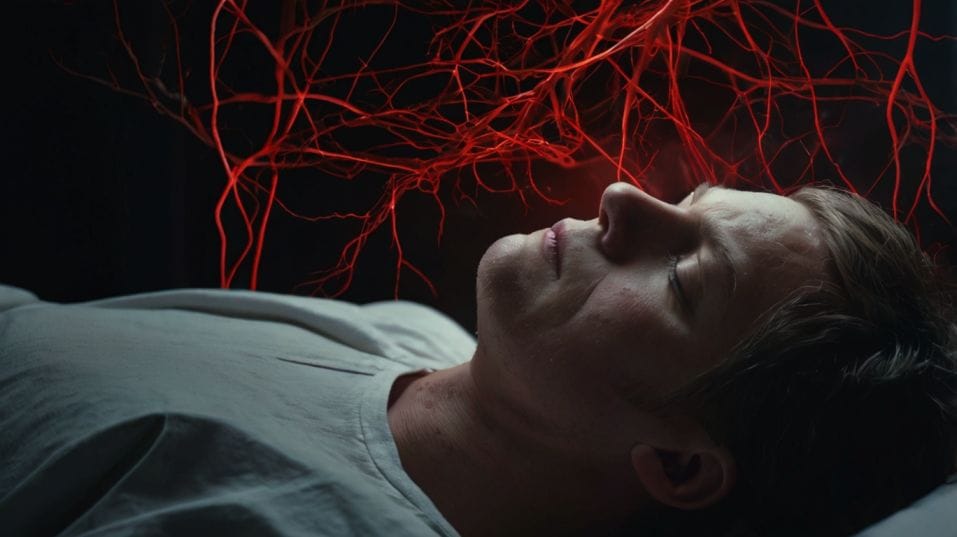The Link Between Poor Sleep and High Blood Pressure
Struggling with energy or blood pressure? Learn how simple sleep tweaks can reset your body and boost heart health—no overhaul required.

Ever wonder why you still feel drained even after a full night in bed? It might not be your schedule—it could be your blood pressure. Sleep isn’t just rest; it’s when your cardiovascular system resets.
When that deep recovery doesn’t happen, your body stays in overdrive. The result? Higher blood pressure, sluggish energy, and slower recovery. The good news? You can turn things around tonight with simple, science-backed sleep tweaks.
What Really Happens to Blood Pressure While You Sleep
Blood pressure isn't static. It rises and falls throughout the day in a natural rhythm, known as your circadian cycle. One of the most crucial dips happens at night when you're sleeping.
In healthy sleepers, blood pressure drops by around 10–20% during deep rest. This is called nocturnal dipping, and it's essential for cardiovascular repair. It’s your body’s built-in recovery window.
But when your sleep is short, fragmented, or inconsistent, that dip flattens—or disappears completely. Your body stays stuck in a mild state of fight-or-flight, with higher levels of cortisol and adrenaline.
These stress hormones keep your heart rate elevated and your blood vessels tight, making your system work harder than it should, even in the middle of the night.
Over time, this lack of overnight recovery turns into a chronic issue. Your baseline blood pressure creeps up, even during the day. And it gets harder for your body to regulate it naturally.

The Sleep-Blood Pressure Feedback Loop
Here’s where things get tricky. High blood pressure can make sleep worse—and poor sleep can make blood pressure worse. It’s a vicious loop, and it doesn’t take much to get trapped in it.
When your sleep is disrupted—think frequent wake-ups, shallow sleep, or insomnia—your body kicks out stress signals.
Your sympathetic nervous system (the "gas pedal") stays activated, while your parasympathetic nervous system (the "brake pedal") can’t do its job properly.
You wake up feeling tired, tense, and wired. And this overstimulated state can persist all day, quietly elevating your blood pressure without you even realizing it.
This is why just trying to relax or cutting salt isn’t always enough. If your sleep is broken, those fixes won’t get you far.
Why Sleep Quality Beats Sleep Quantity
You’ve probably heard that you need 7–9 hours of sleep. But those numbers don’t tell the full story. It’s not just how long you sleep—it’s how well.
You need enough deep sleep and REM sleep for your body to fully recharge. And deep sleep, in particular, is where your cardiovascular system resets.
During deep sleep:
- Your heart rate slows.
- Blood vessels relax.
- Brain activity shifts into low-frequency delta waves.
- Growth hormone is released, aiding recovery and repair.
If you’re constantly waking up or stuck in light sleep, you don’t get enough time in this phase. That means no full-body reset. No blood pressure dip. No bounce-back energy.
So if you're waking up groggy, dragging through the day, or relying on caffeine just to feel normal, odds are you’re not hitting that deep sleep threshold—no matter how long you’re in bed.
Practical Ways to Improve Sleep (and Blood Pressure)
Forget biohacking overload. The most effective sleep upgrades are simple, repeatable, and grounded in biology. Here’s how to tilt the odds in your favor:
Lock in a consistent sleep schedule
Your body craves rhythm. Going to bed and waking up at the same time daily—even on weekends—trains your internal clock.
When your circadian rhythm is dialed in, your body releases melatonin on time, your heart rate slows predictably, and blood pressure follows suit.
Build a wind-down window
Sleep isn’t a switch—it’s a process. Give yourself at least 30–60 minutes before bed to shift out of “go” mode. Lower lights. Power down screens.
Swap stimulation for calm: read, stretch, listen to music, take a hot shower. Your nervous system needs time to switch gears.
Watch the late-night sabotage
Even small habits can block deep sleep. Alcohol fragments sleep cycles. Heavy meals keep your digestion working overtime.
High-intensity workouts too close to bedtime spike cortisol. Shift these earlier in the evening, and you give your body space to recover properly.
Keep your sleep environment tight
Dark. Cool. Quiet. Those three cues tell your brain it’s time to shut down. Use blackout curtains, cool your room to around 65°F (18°C), and block out noise with a fan or white noise machine. This isn’t about aesthetics—it’s about biology.
Get morning light exposure
Your circadian rhythm takes cues from light. Get sunlight within 30–60 minutes of waking to reinforce your internal clock. This helps regulate melatonin production later at night, setting the stage for deeper, more consistent sleep.
The Upside: What Happens When You Sleep Right
Once your sleep patterns stabilize, the shift in how you feel is noticeable. You wake up clearer. You recover faster from workouts.
Your energy feels clean—not caffeinated. Your body finally gets a chance to run at full power, because it’s no longer stuck in overdrive.
And yes, blood pressure responds. Studies show that consistent, quality sleep can reduce both systolic and diastolic blood pressure—without medication, without extreme diets. It’s not just prevention. It’s optimization.
Final Thoughts
Your sleep is a powerful tool for regulating blood pressure—and unlocking better energy, sharper focus, and stronger recovery. You don’t need to be perfect.
You just need to be consistent. Start with the basics: same bedtime, screen-free wind-down, light in the morning, and a quiet, cool sleep space. Then let biology do its thing.
Start tonight. Don’t overthink it—just commit to sleeping better. Your heart will thank you. So will your energy, your brain, and everything else.




